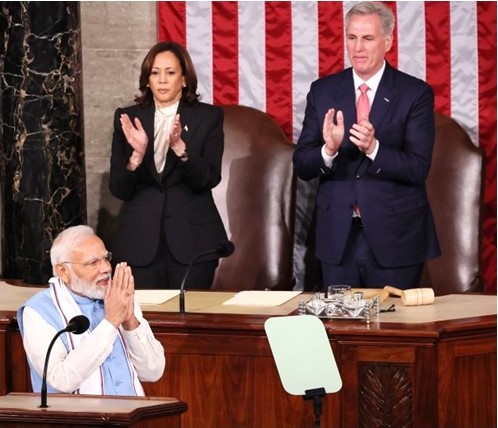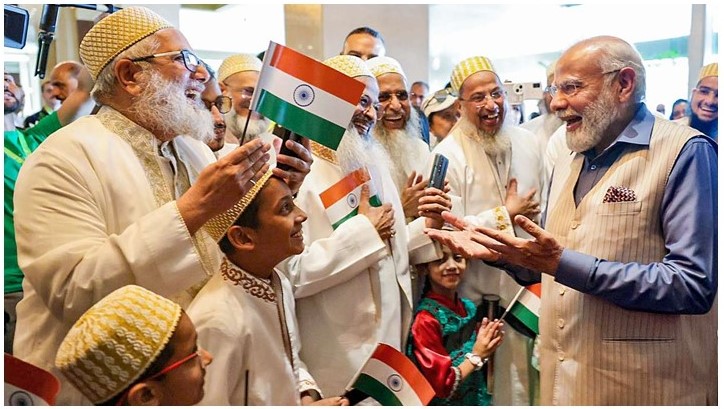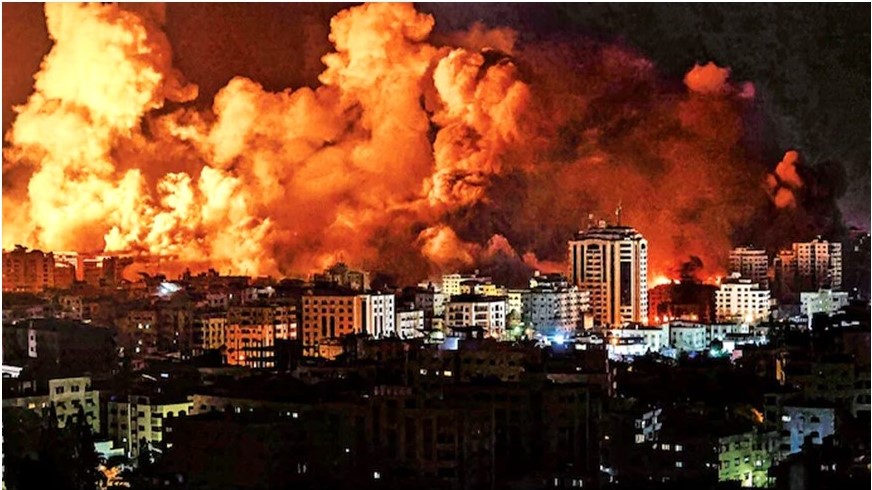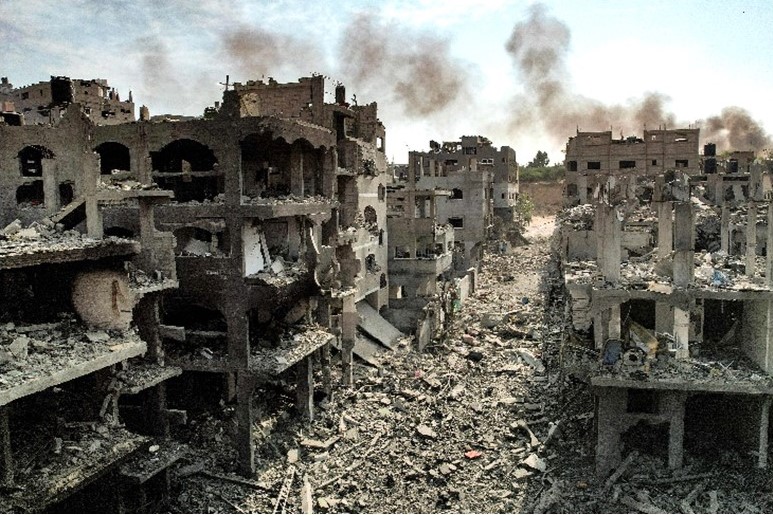For a variety of reasons, we were unable to publish the July and October issues of the magazine. Health issues during summer, entirely preventable, led to hospital stay and somewhat lengthy recovery at home. Back to my almost normal self, The Patrika is back again after a hiatus. Trying to recall events in the last several months, I felt like Rip van Winkle waking up from his years-long slumber overwhelmed by the changes around him. Here are the points you would have seen in the Pittsburgh Patrika’s July and October issues. The stories below are numbered. If you are not interested in any specific topic, skip and you go to the next. As always, we look forward to your feedback.
1. Modi’s Second Address to the US Congress in June, 2023: This is significant because Prime Minister Narendra Modi is the only Indian prime minister to have addressed the US Congress twice. Remember, Modi, when he was the chief minister of Gujarat over 15 years ago, was denied the American diplomatic visa. This was because of the heavy lobbying by Indian and American left liberals in US universities, think tanks, Christian and Islamic lobbying groups, and media houses opposed to Modi and the BJP.
Granted, it was not the US Establishment’s change of heart towards Modi that made the US Congress invite Modi to address them for the second time. It was the geopolitical reality of China’s threat to the US-led western hegemony and the good old realpolitik of American self-interest. Other than India, no country anywhere in the world can offer multidimensional challenge — only challenges and not threats — to China. China is so far ahead of India on many metrics that for the near next 25 years India will not be a real threat to China; but China cannot also ignore India now. If it does, it knows that it will have to deal with a more assertive India down the road.
Being a shrewd politician, Modi used his opportunity to address the US Congress with panache appearing in traditional Indian garb and speaking with elan in his very Gujarati English accent, delivering his lines with pauses and repetitions for emphasis so that his message was not lost because of his accent. His audience was not just the 500-plus members of U.S. Congress and other invited guests. Modi’s audience was his social, political, and powerful faith-based detractors not only in the US, but also in EU, China, and particularly India.
Modi detailed on India’s complexity and diversity to his audience, enough to baffle most naysayers!
• 2500 political parties, 20 different parties running 30 Indian states,
• Twenty-two official languages and thousands of dialects.
• Indian cuisine and sartorial styles changing every one-hundred miles.
And he listed his government’s achievement with this list:
• Fourteen million homes to house 150 million people; basic medical insurance for five hundred million people.
• Introducing the banking system to hundreds of millions of rural and poor people that traditional banks considered a burden as account holders.
• 850 million smart phone and internet users.
• How India managed the Covid pandemic by vaccinating its over one billion people with two billion vaccines, at the same time supplying vaccines to many least developed countries at deeply discounted prices or for free.
• Digital banking for all citizens helping even street vendors for getting their money in seconds from their customers.
• And finally, he also said that over 45% of all the digital transactions on a global scale occurs in India, with even street vendors using OCR codes for their transactions.
One wonders why he did not include these in the list:
• India being the home for four major faiths native to itself — Hinduism and its many branches, Jainism, Buddhism and the Sikh religion — and all other Abrahamic faiths with their adherents in the millions. And a tiny and thriving Zoroastrianism as well,
• Tens of thousands of registered newspapers and periodicals,
• Over nine hundred private television channels, and
• More than 1,000 radio stations in regional languages, Hindi, and English all across India reaching India’s 1400 million people.
How many college-educated Americans can even grasp India’s complexity? Even his worst detractors in India and elsewhere would be impressed, but unwilling to say so on record. His address to the US Congress was well received as seen by several interrupted applauses.
2. Modi’s Warm Reception in Egypt: On his way back from the US, Modi made his first visit to Egypt. The bilateral talks with Egyptian President Abdel El-Sisi covered trade and investment, renewable energy, information technology, and pharmaceuticals. While in Cairo, Shahzada Husain, a prominent member of the Cairo’s Bohra community, walked Modi around the spectacular 11th century Shia Mosque. These Dawoodi Bohras originating from Gujarat in India, living in Cairo, renovated the mosque from 1970 and are maintaining it since then.
Again, Modi’s the real purpose for the well-publicized mosque visit was to blunt his Christian, Muslim, and left liberal detractors in India and the Western media houses.
3. The G-20 Summit in New Delhi: And then there was the G-20 (Group of Twenty) Summit in New Delhi in September 2023. Heads of twenty nations (and/or their representatives) took part in the mega event carefully planned for more than fifteen months and flawlessly orchestrated by the Indian officialdom, known more for its lackadaisical style in executing events. The G-20 countries account for 85% of the global GDP and 2/3 of the world population. These countries run the world.
Russian President Vladimir Putin stayed away from the G-20 meeting because of the Ukraine War. China’s Xi Jinping had several reasons to skip the G20 meeting: he wanted to show his solidarity with Putin on Ukraine, and wanted to convey to Modi that there are many contentious, festering issues between China and India. Besides China has territorial disputes with many G-20 members from East and Southeast Asia, and he did not want to be in New Delhi in their presence. The absence of these two big leaders only helped Modi to take all the limelight on himself.
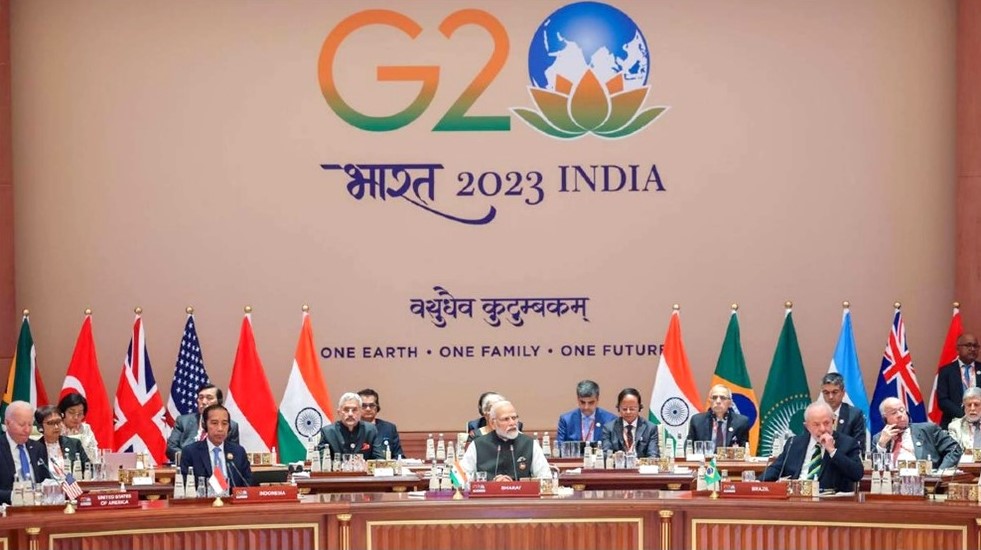
With the cloud of the Ukraine war hanging over, most observers were speculating that there would be no unanimously approved declaration at the end of the summit. Not having such a declaration would have given Modi’s opponents in India a nice weapon to berate him with for all the hype around the G-20 meet. The piece de resistance for Modi was the unanimous declaration as the final end product of the summit, several hours ahead of the concluding session.
Modi scored another memorable feat at the G-20 meeting by making the members quickly adopt his proposal giving full membership to the African Union, to represent the African Continent in future meetings. India has been making a case for giving full membership to the Global South, even when some of these countries are above the Equator. Previously the First World came up with pejorative term Third World Countries, and the less offensive term LDCs (Least Developed Countries) for these countries. Ironically, the First World colonized and exploited these countries for centuries, making them poor, in the first place.
4. Chandraayan-3 Landing on the Moon: While Modi was in Johannesburg, South Africa attending the BRICS-Plus conference in August 2023, the Chandraayan-3 made a safe and smooth landing on Moon’s south pole, which gave him and India all the attention at the meeting. This was a political windfall for Modi, who has been trying to highlight India’s scientific and technological skill. Just imagine if the Moon vehicle had crash-landed. Talk about good fortune for a politician!
5. Indian Americans in the Presidential Race: The GOP primaries were the stage for the ugly slugfest between Vivek Ramaswamy (parodied as Vee-veck by his GOP opponents) and Nikki Haley — giving great entertainment not just for the desi community in US, but for Indians back home and the whole USA. An unbelievable scenario indeed!
Nikki Haley is a twice-elected governor of South Carolina, no mean achievement for an immigrants’ child. During her second term in the governor’s mansion in South Carolina, President Trump appointed her as the US ambassador at the UN, a big stepping stone in her political climb. She converted into Christianity from her Sikh faith before entering electoral politics. But her Christian faith is not clean cut. See here: www.religionnews.com/2023/02/16/nikki-haley-says-shes-christian-but-its-complicated/
Vivek Ramaswamy, a total newbie in the American politics, has not contested even for a school board election in his affluent neighborhood in Columbus OH. His foolhardy attempt to seek the office of the president gives a comic relief to this farce. Born to riches, he piled on millions through successful investments in biopharma industries. In the blood sport of American politics, he is trying to succeed where even the Blue-Blooded Texan Ross Perot could not. Before he gets the GOP nomination, his ancestral village in Kerala has to get a snowstorm.
If Ramaswamy thinks that he can snag a powerful post as a VP or a cabinet office through his foray into the presidential race, his chances are slim. His brash way of articulating his views and his immense wealth and lack of grassroots GOP support are impediments for any president to give him a political appointment.
Further, it is highly unlikely that either of Vivek or Nikki can challenge the Trump for the GOP nomination. (Trump’s nomination is under cloud because of the Colorado Supreme Court decision.) And if Trump eventually becomes the GOP candidate for the 2024 presidential election, and he chooses Nikki as his VP candidate, she has to suffer through the humiliation of working as his deputy. But then in life, particularly in politics, ambition makes one thick-skinned with little shame.
6. The Ongoing Israeli-Palestinian Conflict: The long story of this conflict is traceable to European colonial occupation – by the British and the French — of the region between 18th and 20th centuries. This was compounded by the US involvement in the region as the leading superpower after WW-II. The end of the war gave birth to the nation-state of Israel in 1948 after the defeat of the Nazi Germany. With more Jews living in the US (estimated to be over 7.5 million) than in Israel itself (under seven million), the US became the de facto protector of not only Israel formed in 1948 but also of the Jewish Diaspora worldwide.
The latest Israeli-Palestinian conflict is like active volcanic eruptions and earthquakes. Every once in a while, active volcanoes have to erupt spewing millions of tons of debris into the sky; and active fault zones have to release the mounting pressure in earthquakes when slowly moving huge blocks of tectonic plates running for hundreds of miles press against each other. The longer the gap between any two quakes or volcanic eruptions, the more devastating the eruptions and quakes are and the damage they inflict on the people living in their vicinity.
The latest one that Hamas started in October 2023 with devastating effect was more lethal (with more than 1400 Israelis killed inside Israel and several tens taken as hostages) by the Hamas intruders and rocket attacks. Even in the 1967 Arab-Israeli war only seven hundred Israelis were killed. Given the far superior strength of the Israeli military, Hamas knew how Israel would respond. Respond, Israel did, with devastating effect with over 20,000 Gazans killed (with a kill ratio 15 to 1 in favor of Israel), and most of the Gaza infrastructure, including hospitals, reduced to rubbles.
Cynically looking at it, perhaps this is what Hamas wanted. Consider this: the Islamic Turkey, inheritors of the Ottoman Empire, already has diplomatic relations with Israel for a long time, even though the two countries blow hot and cold, depending on the conflict du jour. Influential Arab states – like the UAE and Bahrain — recently opened diplomatic relations with Israel. And Saudi Arabia, the most visible Arab and Muslim influencer globally, was close to recognizing Israel.
If the Arab world accepts Israel by opening embassies and trade and cultural exchanges, the Palestinian issue will further recede in the rear-view mirror for the US, EU, Russia, and even China and other countries that matter. And other Muslim countries like Pakistan will be forced to fall in line. This is precisely what the Hamas did not want. Now, with the latest escalation started by Hamas, the Arab-Israeli diplomatic thaw is put in deep, deep cold storage for the next two decades.
The Arab-Israeli conflict will continue for the foreseeable future with periodic eruptions. The Abrahamic Faiths – Judaism, Christianity, and Islam — throughout their over two millennia old history have been living with each other in perpetual conflicts, persecution and/or war approved by their faiths. Given this leitmotif, the only way for the region to live in peace is for the three religions to physically and psychologically exhaust themselves of mutual hatred and accept the inevitable need for coming to terms with each other. They will then, and only then, learn to live – and also let live – with each other in a pluralistic society.
7. The United Nation is Now Irrelevant: In the midst of the Ukraine war and the Hamas-Israeli conflict, one thing becomes clear even to someone with only cursory interest international politics. The United Nations, with its 5-member Security Council with veto power and bloated bureaucracy, has an abysmal track record for resolving conflicts or ending outright wars that have killed tens of millions of innocent civilians – Korean Wars, Vietnam, Reagan-Era wars in Central America, all the Arab-Israel conflicts, the deaths of Christian and Muslim civilians in the erstwhile Yugoslavia,, and the US-instigated wars in Iraq, Kuwait, and now the Ukraine war.
The UN has become a exclusive public club of 190-plus nation-states for their fancy annual jamboree in NYC every September where the fall weather is excellent. These guys with their family and sidekicks land in New York for a week-long excursion to hobnob with other heads of states and senior bureaucrats at their taxpayers’ expenses. These senior bureaucrats burnish their resume and renew their contacts for their post-retirement avatars as highly paid consultants. American diplomats top this list.
The presence of UK and France in today’s UN Security Council with veto power is anachronistic. Their veto power in the Security Council is a relic of their ignoble colonial past. The world has changed in the last seventy years. With UN’s mediocre track record in resolving conflicts, one wonders why it even exists today.
It is time the UN takes a lesson from stock exchanges to stay relevant. The stock markets routinely change the companies in their stock indices to stay relevant as the business environment changes. For example, the once-stellar companies — Alcoa, GE, AT&T, ExxonMobil, Pfizer, and others — in the thirty companies in the Dow-Jones-30-Average are no more in the list.
8. Indian Supreme Court Confirms the Indian Parliament’s 2019 Abrogation of Article 370 and 35A on Kashmir’s Special Status: In early December 2023, the Indian Supreme Court put its stamp of approval for the Modi government’s abrogation of Article 370 and 35A in August 2019 passed in the Indian parliament with two-thirds majority. In a unanimous decision, the 5-member Constitution Bench gave its approval without any qualifying Ifs and Buts.
The Kashmir problem festering for over seven decades and with 3½ wars started by the (mis)adventurous Pakistan, is finally laid to rest at least inside the charged atmosphere of Indian political discourse. Major opposition political parties recognize that with no support from Indian voters for continuing with the Kashmir special status, it is time to move on. They also realize that it is they — mainly the Congress party — who let this problem fester for so long.
The nuclear-powered Pakistan could do nothing else even with its 500,000 strong “battle-hardened” army and 200-plus nuclear bombs with supersonic long- and short-range delivery systems.
9. Pakistan’s Predictable Reaction: As expected, the Pakistan’s political and military establishment, media houses and think tank members hyperventilated and went ballistic on the Indian court decision. But Pakistan’s economy is in ICU, kept alive by only with frequent IMF bailouts and the Ummah and China money, its political leadership is the weakest. Inflation rates over 40% and interest rates of 23% are making life miserable for its citizens.
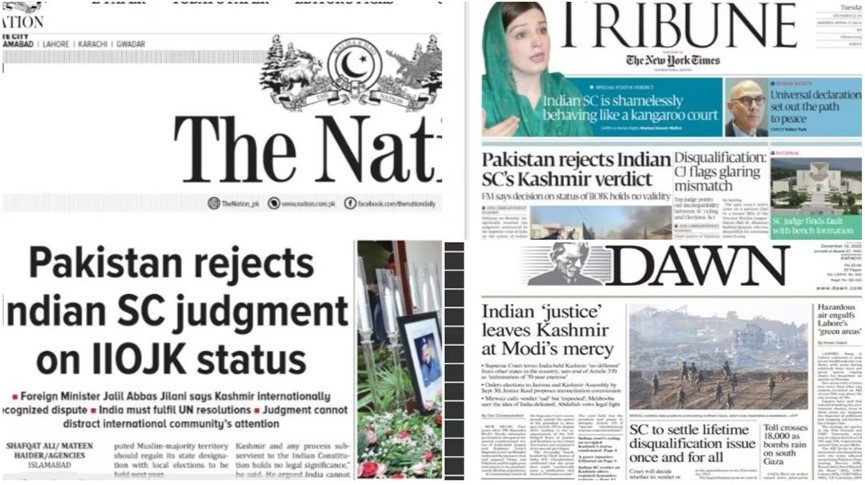
Pakistan was dismayed that the Muslim Ummah — from Morocco to Indonesia — just shrugged off at the Indian court decision. With the on-going Hamas-Israel conflict and the Ukraine war to deal with, dissenting notes from the UN and other Western capitals were missing, much to Pakistan’s chagrin.
Meanwhile, in the past ten years prime minister Modi has bettered his and India’s multifaceted relationship with all Arab and Muslim nations, making it attractive for them to invest in India and in Kashmir.
10. India-Pakistan Relations Will Continue in the Deep Freezer: With the Indian Supreme Court’s okaying the abrogation of special status for Kashmir, in future India-Pakistan negotiations for improving strained relations, the space has shrunk enormously for Pakistan for discussing Kashmir either as a bilateral issue, or as an international issue. So, when new governments come to power in India and Pakistan in 2024, we can only expect at best that the current no-war-no-peace status quo to continue.
Pakistan is in a mess. On every metric as a nation-state, it is at the nadir now, and it will take over 20 years to come out of the mess. Pakistan’s military and political establishment, its madrasas and Islamic scholars have soaked to saturation its young population in a marinade of hatred for India, its composite culture and civilizational grand narrative. Pakistan is teetering on the edge of bankruptcy. Its bloated military with over two hundred nuclear weapons and delivery systems is sitting over its nominally elected democratic national government.
For now, there is no room even for any baby steps for improving India-Pakistan relationship. Forget about Aman ki Asha or neighborly mohabbat. The two nations have complex histories for over one thousand years with diametrically opposite perceptions from each side. The best one can hope is for the two counties to learn to live with each other with deep suspicion and device mechanisms to avoid any armed conflicts, which always have unintended consequences. The booming India does not want it, and the precarious Pakistan cannot afford it. One hopes both recognize this. ∎

